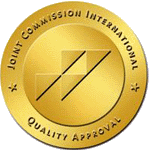Body composition analysis
About the Laboratory
Bioelectrical Impedance Analysis is the analysis of the amount of fat and fluid in the body, muscle and bone mass, and metabolism. All in one procedure, (the procedure duration is not more than 5 minutes). A person can be represented as consisting of 5 segments: 2 arms, 2 legs, and body. InBody performs segmental analysis, that is, the analysis of each part, not the whole body. The patented tactile electrode technology and the 8-point InBody method ensure 98% measurement accuracy and reproducibility of the results. Bioelectrical Impedance Analysis (BIA), or bioimpedance analysis is a common method of determining the composition of the human body by measuring the electrical resistance in tissues. That is a weak electric charge is passed through the body, the resistance (impedance) is measured, which gives an idea of the total water content in the body (total body water, TBW). Since water is mainly contained in the blood, in the muscles, nerves, and bones, the lean (non-fat) body weight is calculated through the water content, and then, through subtraction from the total body weight, the mass of fat in the body. Bioimpedance analysis is considered a more accurate method than calculating body mass index (BMI), since it takes into account not only height and weight, but also the ratio of fat and non-fat mass. This is the same analysis that can show the difference between fat and “broad bone”.
InBody 570 Body Composition Analyzer meets the requirements of the international quality control standards ISO 9001 and ISO 13485, the requirements of IEC60601-1 of the international safety standard for electronic medical and IEC60601-1-2 of the international standard for electromagnetic compliance.
Services of the Laboratory
Modern methods of bioimpedance analysis allow us to evaluate such indicators of the body as
- Ideal weight, body mass index
- Amount of adipose tissue (kg, %)
- Amount of active cell mass (muscle, nerve cells)
- Amount of intracellular and intercellular fluids (plasma, lymph)
- Consumption of calories at rest (basal metabolic rate)
- Deviations and dynamics of changes
- Obesity, body weight control
- Hepatitis
- Anorexia
- Cirrhosis of the liver
- Sports and fitness classes
- Examination is not carried out for people with a pacemaker installed and pregnant women
- The measurement should be carried out two to three hours after eating. Everything that is in the stomach is measured as body weight, although it is not, and leads to incorrect data
- Empty the bladder half an hour before the procedure
- Do not drink alcohol, tea and coffee for two days before the examination
- It is not necessary to carry out the measurement after physical exertion, during which the body loses a certain amount of water, so the results of the analysis may be incorrect
- If the difference between the temperature on the street and in the room is large, then it is necessary to allow the body to acclimatize, if you are cold or overheated, the analyzer will be wrong
- For more accurate results, it is recommended to leave as little clothing and jewelry as possible during the measurement procedure, or to wear loose clothing, no stretchy underwear and tights: clothing should not change the configuration of fabrics
- Studies show that even on the most sensitive device and with a perfectly executed procedure, the error in determining fat mass reaches 8-9%. That is, you can lose 4% of fat, but bioimpedance will show that you have gained 4%. This, of course, can confuse and unfairly disappoint you in the diet and exercise that you have devoted yourself
- It is best to do bioimpedance measurement not often, but once every few months, so that the loss or weight gain is more noticeable, and the errors do not confuse and do not hide the overall dynamics
- The bioimpedance measurement itself takes only 10-20 minutes, but before that, you will be weighed, measured in height, and entered into the program, information about your age and gender is added. This will be necessary for the computer to calculate the results
Block А2
1st floor
Department of Functional Diagnostics
Registration: +7(7172) 70 80 58




